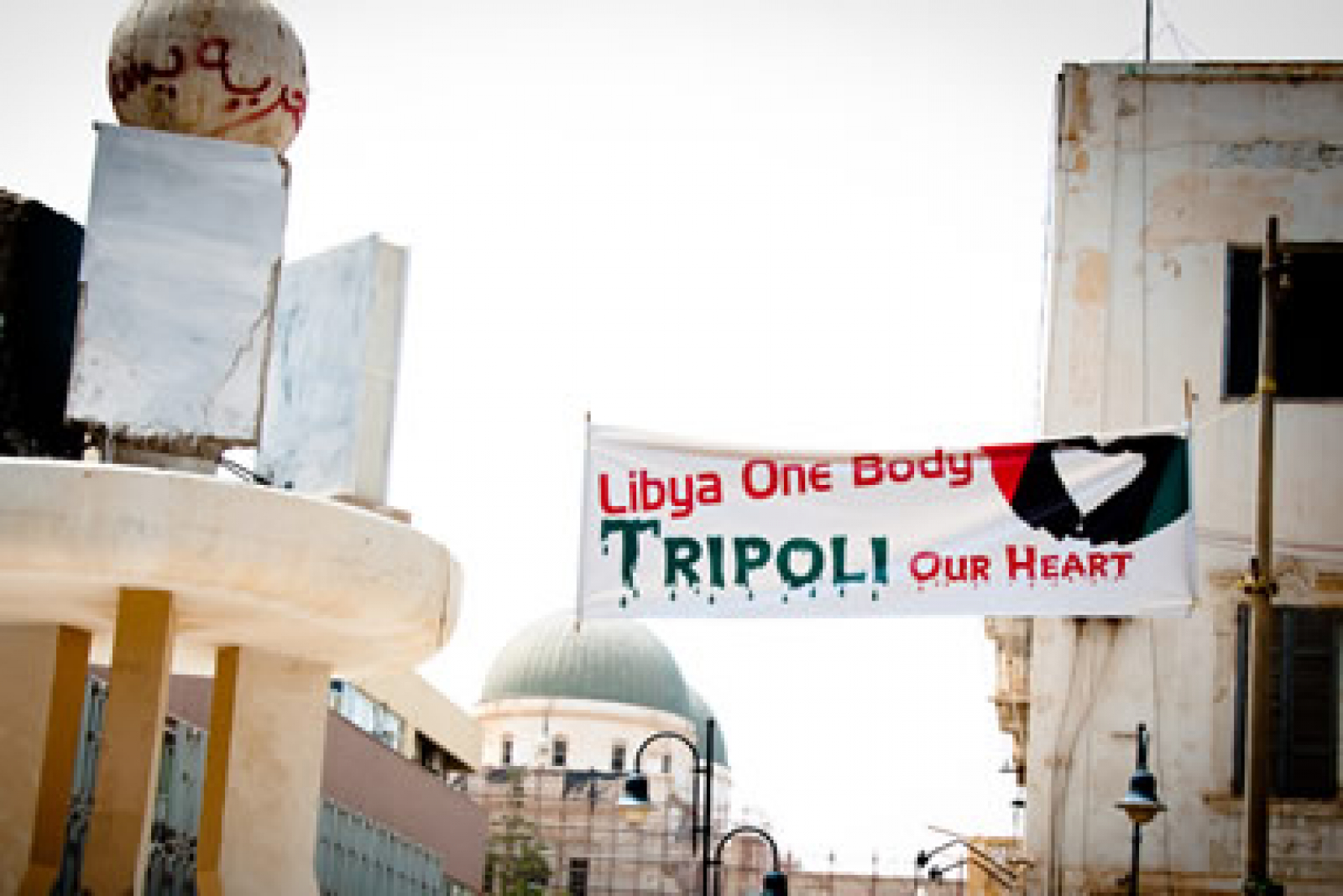
SHARE
Writing in the Washington Post, NDI's Leslie Campbell, regional director for Middle East and North Africa programs, analyzes Libya's political transition.
Perhaps it is because the ouster of Moammar Gaddafi will come months after the fall of Tunisia’s Zine el-Abidine Ben Ali and Egypt’s Hosni Mubarak, or maybe it is fatigue generated by the wars in Afghanistan and Iraq, but the Libyan revolution seems subject to a higher standard of success than the uprisings that preceded it.
A curious conventional wisdom has emerged in the commentary on Libya’s revolutionaries. “We don’t know who these people are or what comes next,” the popular reasoning goes, “so we can’t let ourselves be too enthusiastic about them, their goals or their achievements.”
But it is a distorted form of realism to believe that the future will be worse than the present. It’s as if the unpredictability of the future has led to nostalgia about what once was, even though Libya’s status quo included a maniacal dictator who plundered his country’s resources, sponsored outrageous acts of international terrorism, and harassed, jailed and killed his political opponents. It is surely unfair to demand that the courageous Libyans assuage our anxiety before claiming their fundamental human rights.
While it’s true that the members of the Libyan National Transitional Council aren’t well known, their story is remarkable. Many are lawyers and academics who happened to be in the Benghazi courthouse the day the uprising began. They were drafted to lead a revolution when fighting broke out and Gaddafi’s security forces abruptly quit the city.
Notes from Benghazi: Looking Ahead

NDI staff in Benghazi have been meeting with representatives of the National Transitional Council (NTC) as they plan for the days ahead. NDI Resident Country Director Matyas Eörsi and Senior Advisor David Rolfes report from Benghazi.
While the chaotic scene in Tripoli and the uncertain fate of Muammar Gaddafi dominate the news, the Benghazi-based political leadership is moving forward methodically on a transition plan. An expanded NTC to include additional members from Tripoli and other portions of western Libya will continue to serve a parliamentary role and they will appoint new members to the executive body headed by Mahmoud Jibril. The renewed executive group and NTC will work within the framework of the interim constitution and firm up the timeline for the transition that includes the election of a “National Congress” (a constituent assembly-type body), drafting of a permanent constitution and the election of a government.
While some have criticized the council’s opaque decision making and suggested that its members have strong tribal affiliations, the council should get due credit for steering the efforts of spontaneously organized militias, managing public order in eastern Libya and planning a post-Gaddafi future. Recent decisions include naming civilians to head the defense and interior ministries and releasing a democratic road map that includes the election of a constituent assembly-style “National Congress,” drafting a constitution with national input and elections for a representative government. The council has grown as representatives from towns and cities across Libya have been added. Members have pledged not to seek office after the transitional period.
The council is also acutely aware that it must provide security in newly liberated areas and avoid the lawlessness and vengeance that characterized the early postSaddam Hussein days in Iraq.
Benghazi under the council has thrived as a lively capital with free speech and public debate. Each evening, crowds gather near its picturesque corniche to listen to speeches and debate their future. The national Muslim Scouts organization has marshaled hundreds of young volunteers to deliver food baskets. Dozens of civil society organizations have formed, devoted to such causes as environmentalism, women’s rights and services for injured soldiers. The flags of supportive nations — France, Italy, Turkey, the United States and others — fly in front of the courthouse, both as a gesture of thanks and as a signal of Libya’s desire to join the international community.
This is not to say that Libya’s transition will be quick or easy. There is a growing Islamic discourse in Benghazi that has led the council to create a commission to counter the influence of Islamists and inject liberal ideas into the public debate. A largely homogenous country with a small Berber minority, Libya has strong tribal underpinnings, and it is common in any post-conflict environment for people to seek security within family, tribe and clan. Only time, security and economic progress will lead citizens to form alliances that transcend regional and family ties.
But there are signs that the Libyan transition may be smoother than expected. Unlike the protesters in Tunisia and Egypt, who were caught by surprise when their authoritarian leaders stepped aside so quickly, the Libyans have had months to plan. Learning lessons from Iraq, the council is likely to avoid a Libyan “de-Baathification” and pursue a South African-style truth and reconciliation process.
Engagement by outsiders to help in the formation of government structures, the development of political parties and civil society, and the organization of elections has been invited — surprising in a country that has been isolated for so long. The international community has an obligation and an interest in responding, especially in these early days when assistance is most needed and will be long remembered.
We should not hold the Libyan revolution to a standard that can’t be met. A spontaneous uprising, tremendous personal sacrifice, democratic aspirations and the end of a brutal regime should be celebrated, not nitpicked. We have to resist the urge to judge progress every quarter or, worse, every news cycle, and accept that a new, democratic Libya will be many years in the making.
Related:
- Ready for Day One (Foreign Policy)»
- Our Perspectives»
- Notes from Benghazi: Looking Ahead»
- Notes from Benghazi: Libyans Hungry for Information and Help»
Published Aug. 26, 2011


